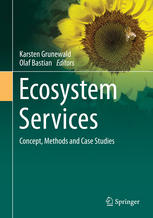

Most ebook files are in PDF format, so you can easily read them using various software such as Foxit Reader or directly on the Google Chrome browser.
Some ebook files are released by publishers in other formats such as .awz, .mobi, .epub, .fb2, etc. You may need to install specific software to read these formats on mobile/PC, such as Calibre.
Please read the tutorial at this link: https://ebookbell.com/faq
We offer FREE conversion to the popular formats you request; however, this may take some time. Therefore, right after payment, please email us, and we will try to provide the service as quickly as possible.
For some exceptional file formats or broken links (if any), please refrain from opening any disputes. Instead, email us first, and we will try to assist within a maximum of 6 hours.
EbookBell Team

5.0
20 reviewsNature provides us with many services seemingly for free: recharged groundwater, fertile soil and plant biomass created by photosynthesis. We human beings draw extensive benefits from these “ecosystem services,” or ES – food, water supply, recreation and protection from natural hazards. Major international studies, such as the Millennium Ecosystem Assessment, have addressed the enormous role of biodiversity and ecosystems to human well-being, and they draw particular attention to the consequences resulting from the reduction or loss of these services. These very topical issues are being addressed by authors/scientists in a wide variety of disciplines – and their approaches, terminologies and methodological specifics are just as diverse. What, for example, does the efficacy of nature or natural capital mean? Which values of nature are particularly important, how are they distributed in space and time and how can they be assessed and the relevant knowledge promoted? Can all ecosystem services be quantified and even monetarised? What should be done to ensure that the multiple services of nature will be available also in future? This book explains the multifaceted concept of ecosystem services, provides a methodological framework for its analysis and assessment, and discusses case examples, particularly from Germany. It is addressed to scientists and practitioners in the administrative, volunteer and professional spheres, especially those who deal with environment, landscape management and nature conservation and regional and land-use planning. The target group includes experts from the business community, politicians and decision makers, students and all those interested in fundamental ecological, economic, ethical and environmental issues.